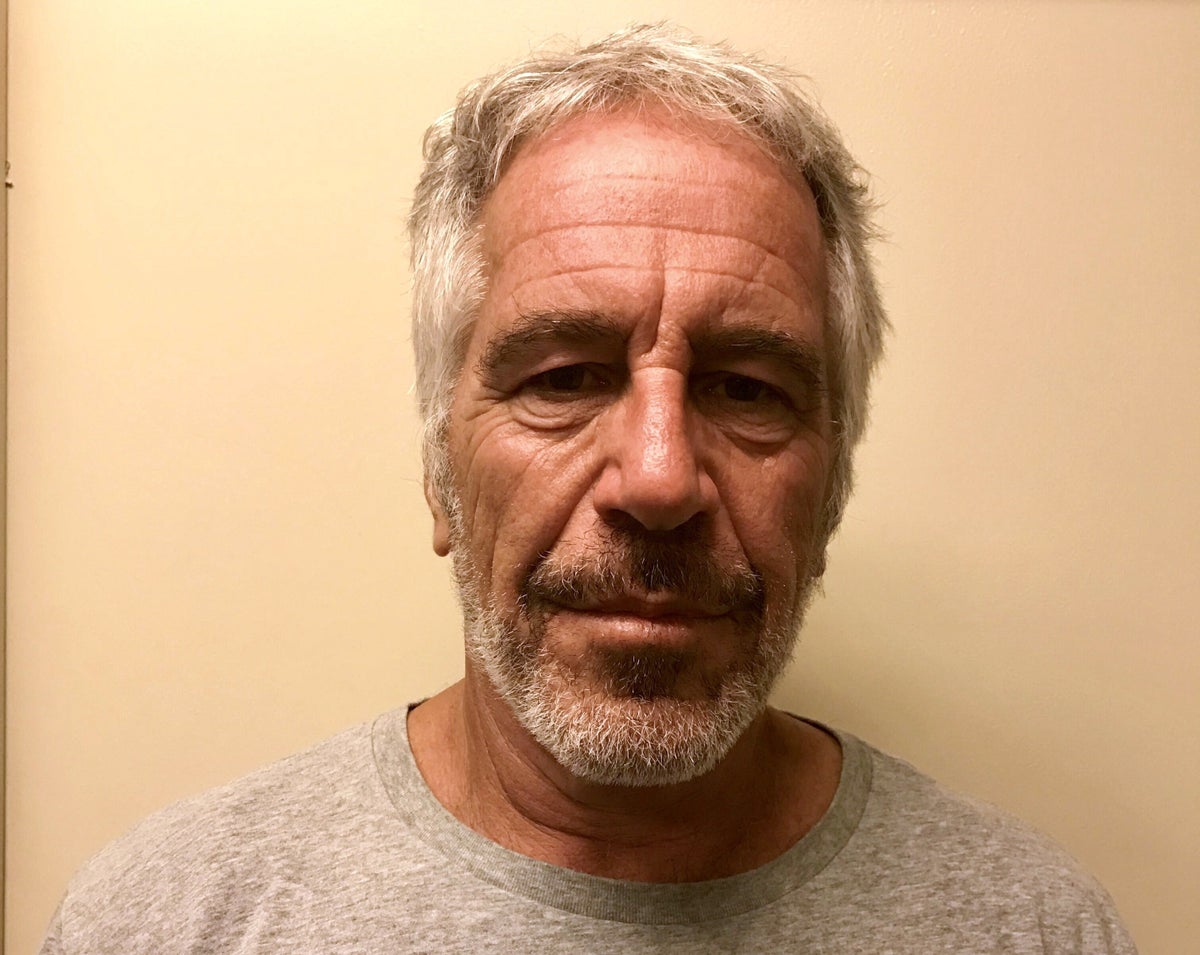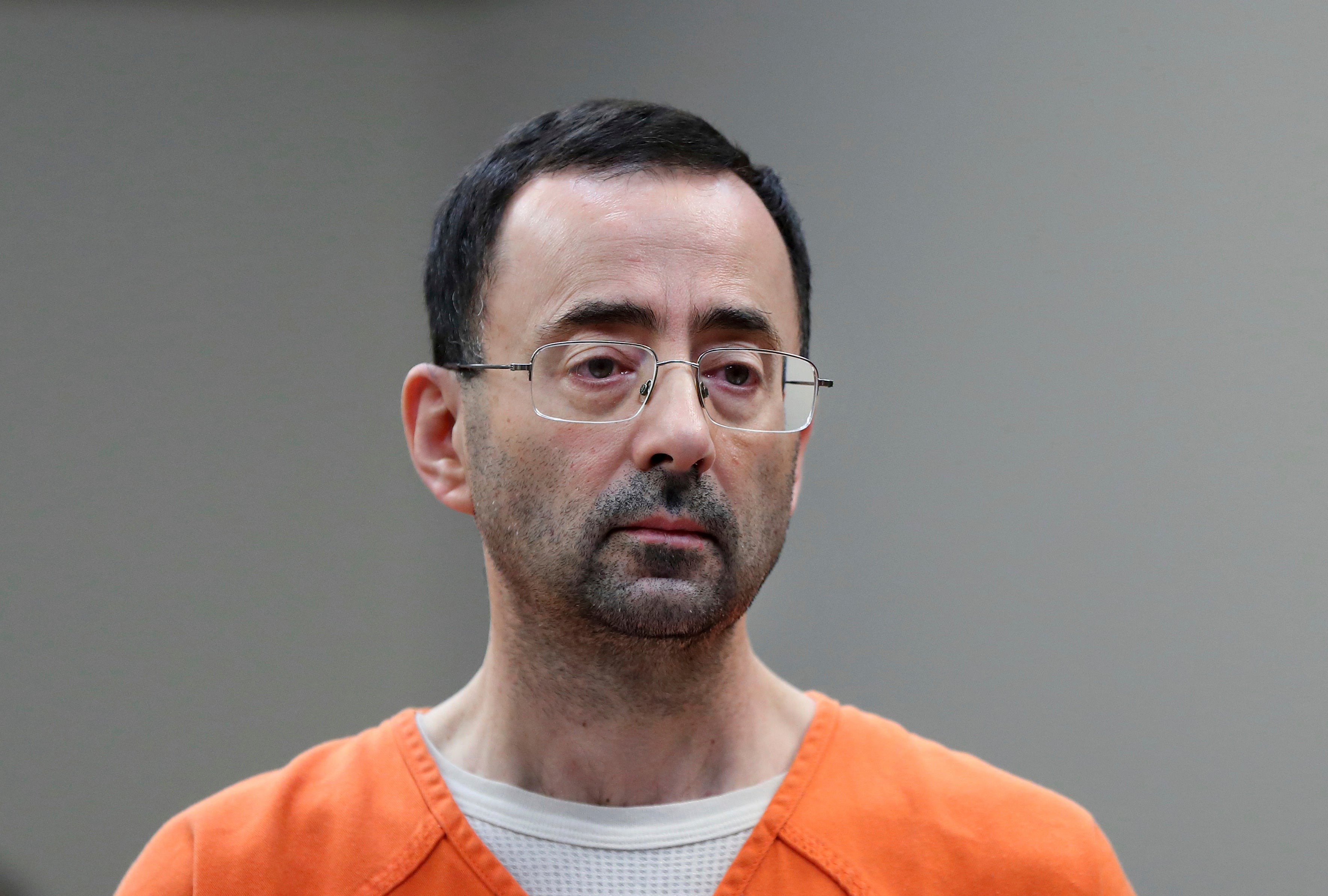
Jeffrey Epstein had unsuccessfully tried to reach out to another high-profile paedophile via a letter that was eventually returned to sender, a new trove of documents about the disgraced billionaire financier has revealed.
The previously unreported letter was penned to Larry Nassar, who was sentenced to between 40 and 175 years in jail for abusing more than 150 women and young girls in the biggest sexual abuse scandal in sports history.
The letter was found returned in the jail’s mailroom weeks after Epstein’s death, according to the more than 4,000 pages of documents reported by the Associated Press on Thursday.
New details in the documents shed light on Epstein’s behaviour during his 36 days in jail, his death and its chaotic aftermath.
Epstein, who was arrested in July 2019 on federal charges of sex trafficking and conspiracy died in a prison cell of Metropolitan Correctional Center on 10 August 2019 as he awaited trial.
The contents of the letter to Nassar were not included in the documents turned over to the news agency.
“It appeared he mailed it out and it was returned back to him,” the investigator who found the letter told a prison official by email, according to documents. “I am not sure if I should open it or should we hand it over to anyone?”
The documents were handed over by the Bureau of Prisons under the Freedom of Information Act and included a detailed psychological reconstruction of the events leading to Epstein’s controversial death, his health history, internal agency reports, emails, memos and other records.
Just two weeks before he died by suicide, Epstein was seen sitting in a corner of his jail cell with his hands covering his ears as he desperately tried to muffle the sound of a toilet that kept running.

After once living a life of luxury and comfort, Epstein complained of struggling to adapt to his new life behind bars and called himself a “coward” at one point.
He remained agitated at times and was unable to sleep, the documents revealed.
Epstein was on a suicide watch for 31 hours after a suicide attempt that left his neck bruised and scraped. He, however, insisted to a jail psychologist that he had a “wonderful life” and it “would be crazy” to end it.
The night before his death, Epstein excused himself from a meeting with his lawyers and said he needed to make a call to his family. He told a jail attendant he was calling his mother, who had been dead for 15 years by then, according to a memo from a unit manager.

His death came as a federal judge had unsealed about 2,000 pages of documents in a sexual abuse lawsuit against him just a day before he died.
That event combined with the erosion of social connections, lack of significant interpersonal connections and “the idea of potentially spending his life in prison were likely factors contributing to Mr Epstein’s suicide,” officials wrote.
The documents also exposed lapses in the management of the Bureau of Prisons and the now-shuttered Metropolitan Correctional Center.
The guards who were on duty for Epstein that night were sitting on their desks just 15ft away from Epstein’s cell as they shopped online for furniture and motorcycles and did not make required rounds every 30 minutes, prosecutors alleged.
The two guards, Tova Noel and Michael Thomas, were charged with lying on prison records after they said they made the required checks before Epstein’s body was found.
Both appeared to be asleep during a two-hour period that night, according to their indictment.
After arriving at the Metropolitan Correctional Center on 6 July 2019, Epstein complained about having to wear an orange jumpsuit like a “bad guy” and requested a brown uniform instead for his near-daily visits with his lawyers.
He said during his initial health screening that he had 10-plus female sexual partners within the previous five years.
According to records, he tried to make adjustments to his new lifestyle.
He had signed up for a Kosher meal and sought permission to exercise outside. Just two days before he was found dead, he bought $73.85 worth of items from the prison commissary. The items included a radio and headphones.
If you are a child and you need help because something has happened to you, you can call the NSPCC free of charge on 0800 1111. You can also call the NSPCC if you are an adult and you are worried about a child, on 0808 800 5000. The National Association for People Abused in Childhood (Napac) offers support for adults on 0808 801 0331







